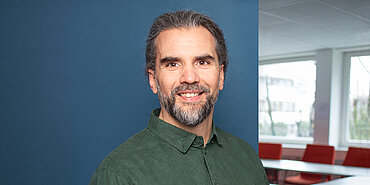Fachkräfteinitiative.International
Fachkräfteinitiative.International helps child and youth services experts and providers boost their intercultural and international expertise. Young people play an active role in this process.
Background
Having intercultural skills is crucial when it comes to navigating today’s Europeanised, globalised world. In this context, cross-border mobility needs to become accessible to all young people rather than remain a limited opportunity for some. What is more, international experience and peer learning helps child and youth services experts to continue developing their skillset, reflect on their work, and motivate young people to go out into the world.
The Federal Government’s Youth Strategy clearly calls for action in this area; specifically, “to promote expert exchanges and expert mobility and to develop a culture of recognition for mobile experts”. It also calls for a pronounced effort “to train experts in international youth work” in order to implement the Youth Strategy. The Government’s 2016 Child and Youth Plan, too, calls upon child and youth services providers across the spectrum to offer young people and experts adequate opportunities to experience “Europeanisation” and globalisation processes in a hands-on, differentiated way. The position paper of the Child and Youth Welfare Association (AGJ) on European youth policy implementation in Germany from 2019 describes how expert exchanges can help evolve and improve the work being done locally in this field, in turn making a valuable contribution towards raising the quality of child and youth services in general.
Fachkräfteinitiatitive.International comes in direct response to this. Incidentally, the Coronavirus pandemic has been an opportunity to leverage the rapid increase in digitalisation to the benefit of child and youth services by developing new virtual and hybrid formats for both training and youth and expert exchanges.
Objectives
Experts working across the entire child and services field are prepared for a more European and international form of youth work.
Child and youth services providers are given access to development labs and support from scientific staff so they can try out new approaches and formats.
Young people are invited to join youth advisory teams where they advise experts and develop their own ideas for attractive youth exchange formats.
Child and youth services organisations acquire a more European and international outlook and engage in cross-border peer learning.
Existing expert training curricula are adapted in close collaboration with major training providers and with scientific input.
Implementation
Development labs and youth advisory teams (virtual and in-person)
The development labs and youth advisory teams try out new digital forms of communication, draw up innovative information and advisory strategies, test digital (blended) learning courses, and develop new approaches and methods for virtual exchanges and other activities.Interaction forum
The forum is a space for participants and organisations to interact, and for managing the initiative as a whole. Nationwide child and youth services organisations, the service offices in the federal states, European and international specialist and funding agencies for international youth work, national and international experts, youth advisory teams and researchers work together to implement the initiative. Two plenary events – one a kick-off event with young people and international partners, the other a European conference – give it external visibility.Study visits/partnerexchanges
Study visits and exchanges with partner countries are organised to learn good practices from other countries and generate fresh input for the initiative as a whole. They are an opportunity for the working groups and development lab managers to engage in a dialogue with partners in other countries to discuss, develop and improve their respective approaches. In other words, training modules are offered both in Germany and abroad.Scientific support and evaluation
Fachkräfteinitiative.International is supported scientifically by the University of Hildesheim’s Department of Social and Organisational Education. Besides advising on the format and providing support throughout the project, the Department is conducting two surveys, one on experts and mobility, the other – a user survey - on digital youth and expert exchanges. The research team also evaluates the prototypes developed in the labs and by the youth advisory teams.
Long-term impact
The outcomes of the initiative will be systematically documented and uploaded to a public website. Working through the interaction forum, the partners will draw up a strategy for communicating the outcomes and ensure that the resulting approaches, formats and methods are shared with child and youth services providers, service offices, and training providers.

Qualification and Further Development of
International Youth Work
![[Translate to Englisch:] [Translate to Englisch:]](/fileadmin/_processed_/4/3/csm_2020_08_20_Michael_Jeske_pixabay_body-of-knowledge-Goethe-Uni-FFM_3635846_1920_44359816b8.jpg)
![[Translate to Englisch:] [Translate to Englisch:]](/fileadmin/_processed_/4/3/csm_2020_08_20_Michael_Jeske_pixabay_body-of-knowledge-Goethe-Uni-FFM_3635846_1920_f95a0f5632.jpg)

